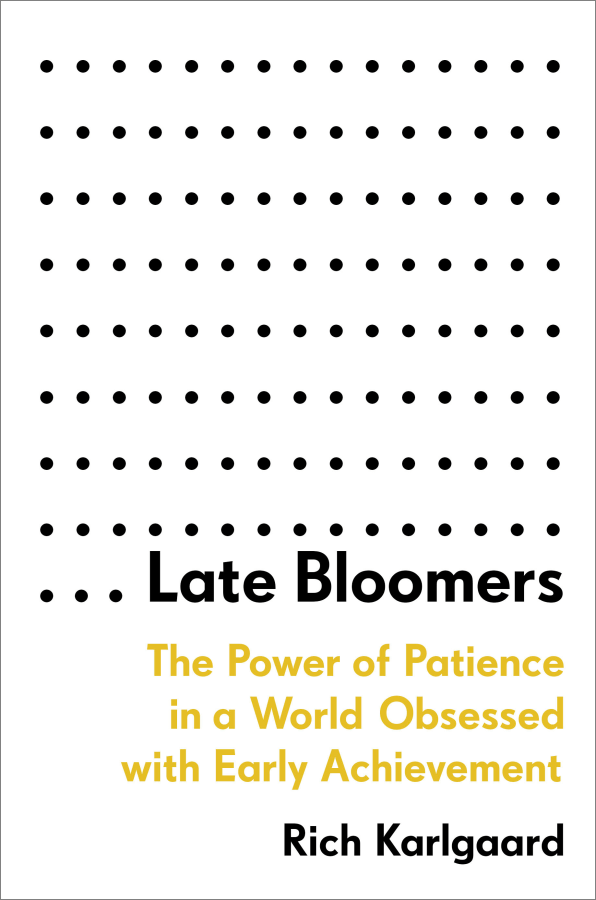It’s okay to quit: The surprising–and subversive–advice for “late bloomers”
How can the curious and creative, the searchers and explorers, jump off culture’s conveyor belt and begin shaping our own fates? We do it by quitting. Quit the path we’re on. Quit the lousy job. Quit the class we hate. Quit the friends and associates who hurt us more than help. Quit the life we regret.
Our culture and social norms create powerful unwritten laws about what’s correct thinking and acceptable behavior. Dissenting from our culture and its social norms isn’t easy. But we who are late bloomers must step up and do it anyway. Why? For the simple reason that as late bloomers, our culture and social norms haven’t served us well. Our unwritten laws, at this moment in history, are tilted in favor of the early achiever.
Consider our culture’s opinion on quitting. The unwritten laws around it are as follows: Quitting shows you can’t take the heat; you can’t handle the stress. You lack internal fortitude, you lack willpower. Quitters never win, and winners never quit. If you’re a quitter, you’ll never succeed.
Tenacity is invaluable, without question. As Samuel Johnson wrote, “Great works are performed not by strength but by perseverance.” And persistence has its place in the late bloomer arsenal, as long as it’s applied correctly, with patience and purpose. But I believe our current obsession with unyielding determination overshoots the mark.
Despite our cultural enthusiasm for determination, there are situations in which perseverance is actually maladaptive. Applying single-minded resolve to something that you don’t really believe in actually makes you less effective. Tenacity misapplied erodes our ability to summon willpower or persistence when we really need it.

[Photo: courtesy of Richard Karlgaard]
This thinking lies behind the psychological concept of ego depletion, a term popularized in the 1990s with a hugely influential series of experiments led by Roy F. Baumeister, a pioneer in the field of social psychology. In 1996, together with his former Case Western Reserve University colleagues Ellen Bratslavsky, Mark Muraven, and Dianne Tice, Baumeister examined the effects of resisting a tempting food on participants’ willpower.
To start the trial, Baumeister kept the study participants in a room that smelled of freshly baked chocolate cookies. Then he showed them the actual cookies, along with other chocolate treats. Some of the participants were allowed to eat these sugary snacks. The rest of the participants, however, were forced to eat raw radishes instead. These were the participants whose willpower and resolve were being tested.
Surprise–the radish eaters weren’t exactly happy about the switch. As Baumeister wrote, many of the radish-eating participants “exhibit(ed) clear interest in the chocolates, to the point of looking longingly at the chocolate display and in a few cases even picking up the cookies to sniff at them.”
After everyone had finished their assigned snacks, Baumeister gave all the participants a puzzle to solve to test their persistence. How long would they persevere in trying to solve the puzzle after their willpower had already been tested by being denied the cookies? The results were striking: Those who were forced to eat only radishes devoted less than half the time to trying to solve the puzzle compared to the participants who were allowed to eat chocolate (as well as a control group that participated only in the puzzle-solving phase of the experiment). Apparently, those who had to resist the sweets could no longer summon the willpower to fully engage in a second task that required persistence.
They’d run out of determination. They’d used up their resolve.
The breakthrough finding of Baumeister’s study was that self-control–and its analogs like willpower, determination, and perseverance–can be depleted. Determination is not simply a skill to be mastered or a habit to be developed. Instead, like over-exercising a muscle to the point of injury, tenacity can fatigue us and break us down. Our determination “appears to be quite surprisingly limited,” Baumeister wrote. In summarizing the results of his famous study, he called willpower “a scarce and precious resource.” Ego depletion represented “a potentially serious constraint on the human capacity for control.”
The notion that self-control depends on the expenditure of a limited resource was actually anticipated by Sigmund Freud as far back as the 1920s. Freud believed the ego (the controlled self) needed some form of mental or psychological energy to resist the urgings of the id (the instinctual self) and the superego (the internalization of cultural rules). Freud used the analogy of a horse and rider to depict this relationship. The rider (the ego) is generally in charge of steering, but sometimes the rider can’t prevent the horse (the id and super ego) from going where it wants to go. This early recognition created the basis of Baumeister’s finding: When the rider gets tired, the horse takes over.
The notion that we can somehow strengthen our willpower “muscle” is misleading at best, and detrimental at worst. Conventional wisdom suggests that if we do certain exercises or practice certain habits, we can strengthen this muscle. But science and research tell us that this isn’t true. We can’t simply apply determination like a jelly spread to everything we do in our lives–we’ll burn out. When we force ourselves to do things we’re not naturally inclined to do, or that don’t fit our passion or purpose in life, we pay for it with reduced motivation and drive.
The second problem with the cult of tenacity is that quitting is actually a healthy thing to do at times. Many of the things we desire–thanks in large part to culture–are unattainable. Research shows that when we quit pursuing unattainable goals, we’re happier, less stressed, and even get sick less often. That’s right, quitting is actually physically good for you.
A number of studies tracking subjects ranging from adolescence to young adulthood to older adulthood have shown that goal disengagement–quitting–strongly and positively affects physical health. Three studies found that people who were able to quit pursuing unreachable goals had healthier hormonal patterns and greater sleep efficiency. Not quitting was associated with higher levels of depression, stress, and emotional upset. These symptoms can modify biological processes in our endocrine and immune systems in ways that increase our vulnerability to health problems like asthma and make us more susceptible to disease. In other words, misplaced tenacity can actually make us sick.

As part of our obsession with early achievement, we’ve turned quitting into a pejorative, an insult that cuts straight to our sense of self-worth. And that’s not just unfair, it’s destructive. In a drive to suppress individuality and reinforce cultural norms, society has turned one of the most effective tools for self-discovery into a proverbial four-letter word. It’s Taylorism at its worst, reinforcing the message: Stay on the culturally accepted conveyor belt to success at all costs.
Yet refusing to abandon our investment in a college major, a job, or a path that’s not right for us can be costly. For every moment we double down on something that’s not working, we’re forgoing other potentially valuable opportunities. As behavioral economics and psychology show us, the real waste is not in sacrificing our past by quitting a failing endeavor. It is in sacrificing our future by not pursuing something better.
Reprinted from Late Bloomers Copyright © 2019 by Rich Karlgaard. Published by Currency, an imprint of Penguin Random House LLC.
Fast Company , Read Full Story
(19)



